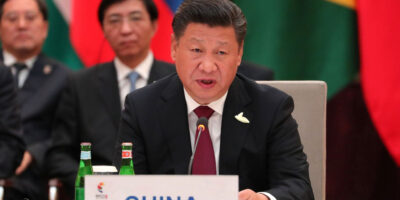Distribution in Markets Is Always Just
Many modern political controversies are often not about production as such but the distribution of what is produced. To whom does the value of what has yet to exist belong? What’s more, how are we to enforce that judgment once it is made, without letting the enforcer change the agreement on its own?
Let’s consider the topic carefully.
Arnold is building a new house; he needs a roof. Brenda is a competent contractor, installing roofs competitive prices. Arnold values the new roof at $10,000 and Brenda estimates she can pay her roofing roustabouts all the costs of wages, nails, shingles, and other material, for $5,000.
Brenda doesn’t work for free, so she also takes $500 from the final price for hiring the workers and organizing the job. Brenda’s roofing can do the job for any price over $5,500. Clearly some mutually beneficial arrangement is possible.
Part of the problem, for both Arnold and Brenda, is the need for policing fulfillment of the agreement. The workers want their pay, the building supply company wants its bill paid for shingles and nails, and Brenda needs her profit. Further, and not least, Arnold wants some assurance that the work is done.
The risks are costs, something that economists call “transaction costs.” Much of the profit earned by entrepreneurs arises precisely from finding ways to reduce transaction costs—for both workers and customers—to manageable levels. The entrepreneur also accepts the risk if the expected revenue does not fully materialize.
Both parties would pay for assurance against such risk, contracting with a third party to extract some painful or expensive bond. Notice that this means that Arnold and Brenda are, in effect, paying to be coerced, because assurance is cheaper than risk. This point was famously made by Milgrom, North, and Weingast and elaborated by Leeson and Stringham.
Commit to Comply
In economist Oliver Williamson’s terms, the problem is the “Fundamental Transformation”: before we sign the contract, both of us recognize that breach is a problem and we try to commit to compliance. But after we sign, everyone tries to find a hole in the arrangement and exploit it. My present self is willing to bind my future self to comply, because that lowers the price I have to pay.
Arnold and Brenda hit on a clever solution: they need a big strong dog to bite cheaters. Since this is a valuable service, required by anyone who wants a cheaply enforced contract, some entrepreneur likely specializes in renting out just this sort of dog; the dog is name Uht. Uht’s job is simple: bite the legs of anyone who breaches an otherwise valid contract.
The whole point of renting Uht—large, loyal, sharp-toothed, and not very bright—is to ensure that the costs of complying are cheaper than breaching. In equilibrium, the enforcement services can be rented out to enforce many contracts at the same time, because Uht has no one to bite. And many new contracts are negotiated because enforcement is cheap and sure.
So, our story has a happy ending. Arnold can buy, and Brenda can sell, a new roof at a price benefitting both. The new roof is worth much more than Arnold is obliged to pay, and Brenda would be willing to accept a price far less than what she actually gets from Arnold. Both are better. And transaction costs are low enough that the cooperative contract is not precluded by risk of breach.
Maybe Not
But maybe that’s not the ending. Maybe it’s not even happy. After a heavy snowstorm, Brenda knocks on Arnold’s door. She points out (correctly) that the value to Arnold of the roof is far greater than what Arnold paid her. In fact, without the roof, the house would be uninhabitable, and the warm family scene Brenda can see through the window would be impossible. Arnold owes Brenda more money, in this view, because the value of having a secure roof is so great.
We could just say, “A deal’s a deal!” If Brenda tries to renegotiate after the fact, Uht the Contract Dog should just bite her, right? Not so fast. Brenda actually is raising a philosophically interesting point.
Suppose that Arnold is rich, and that the roofing business is very competitive. It’s true that Brenda was unable to negotiate a very good deal, and it’s true that her workers won’t get paid very much. But is that fair? Shouldn’t society do something to ensure that Brenda actually makes more profit, or that she pays her workers more? They are the ones creating the value, after all. The benefits of the new roof are considerable; how should those be benefits be distributed, from a moral perspective?
That question harks back to John Stuart Mill’s famous distinction between production on the one hand, and then—“the things once there”—distribution of the benefits the production creates.
The laws and conditions of the Production of wealth partake of the character of physical truths. There is nothing optional or arbitrary in them. Whatever mankind produce, must be produced in the modes, and under the conditions, imposed by the constitution of external things, and by the inherent properties of their own bodily and mental structure. Whether they like it or not, their productions will be limited by the amount of their previous accumulation, and, that being given, it will be proportional to their energy, their skill, the perfection of their machinery, and their judicious use of the advantages of combined labour. . . .
It is not so with the Distribution of wealth. That is a matter of human institution solely. The things once there, mankind, individually or collectively, can do with them as they like. They can place them at the disposal of whomsoever they please, and on whatever terms. . . . Even what a person has produced by his individual toil, unaided by any one, he cannot keep, unless by the permission of society. (Principles of Political Economy with Some of Their Applications to Social Philosophy)
So, yes, production is economic. But distribution is ethical and the province of philosophers and devotees of social justice.
There are two problems with this reasoning, as has been pointed out by a number of people but perhaps most directly by Anthony de Jasay. The first problem is that it is simply false to think that production and distribution can be separated, much less that they should be. Second, if an authority capable of registering and ruling on such ex post claims is created, the compliance enforcement function is compromised beyond recognition.
No one Produces Without a Distribution Plan
In a market economy, there are no actual examples of production-then-distribution sequence. Inputs negotiate, and then are paid, the value of their marginal products. Each input will be able to negotiate in a competitive setting to obtain its increment to physical output, multiplied by the price that output commands in the downstream market. This process cannot be stopped or even manipulated in a pure market setting, and the resulting payment according to the “value of marginal product” is actually the very essence of justice.
The reason this is important, according to de Jasay, is that Mill—and many of the more recent adherents of this view—want to bake the cake first, and then decide how it will be sliced. But that’s not how cakes get baked, in market systems: no one bakes a cake until after it has already been divided, prospectively.
Brenda went around to workers, and to suppliers, and made offers. If these offers were accepted, those are the “slices” of the value cake Brenda is contemplating. When the roof is installed, each of the workers and suppliers is paid in full (otherwise, Uht would have bitten Brenda). It makes no sense to start over “the roof once there,” and then decide how to divide up the value slices. That’s already agreed on by all the participants; all the slices of the cake are spoken for, before the “fundamental transformation” of signing the contract.
Output and Distribution
Similarly, the contractor herself cannot renegotiate and demand more of the cake after it is baked. The reason that the cake was baked (in this case, the contract was signed and the roof was put on) is that an agreement on distribution of the surplus created by the job was agreed on between the homeowner and the roofing contractor. It’s perfectly true that the house would be worth much less, and in fact be uninhabitable in winter, without the roof. But that does not give the roofer legal or moral cause to renegotiate the agreement ex post.
As Anthony de Jasay puts it:
“[In a market setting] output is distributed while it is produced. Wage earners get some of it as wages in exchange for the effort; owners of capital get some of it as interest and rent in exchange for past saving. Entrepreneurs get the residual as profit in exchange organization and risk bearing. By the time the cake is ‘baked,’ it is also sliced and those who played a part in baking it have all got their slices. No distributive decision is missing, left over for ‘society’ to take” (p. 148).
What about Uht the Contract Dog? This is what is most clever about Jasay’s argument. Most people think that there is something different about the dog and the services it provides.
Jasay thinks so, too, but for different reasons. To see Jasay’s second problem, remember that Uht’s job is to enforce contracts. But who will enforce that contract, the one that says citizens will pay and Uht will enforce contracts between citizens? In other words, if people can’t trust each other, why can they trust Uht without some third party enforcement mechanism? It seems naïve to think that Uht will bite himself.
Imagine that one day Arnold comes home. Brenda has stopped bothering Arnold, with Uht’s help, so Arnold expects a quiet night. But on opening the door, Arnold encounters a surprising sight. Uht the Contract Dog has taken out Arnold’s guns, and is cleaning Arnold’s AK-47. The dog is also drinking some of Arnold’s best scotch whisky, and watching Bundesliga soccer on the big screen. This is particularly amazing because Arnold never signed up for the expanded cable package; Uht must have called the cable company and charged the new channels to Arnold.
Arnold is upset. “Look here, Uht! You don’t have my permission to come into my house, take out my guns, drink my scotch, and watch soccer! BAD dog! Bad!”
Uht coolly replies: “Yeah. About your ‘permission.’ I was thinking. You wouldn’t have this house if it weren’t for me. You couldn’t have had contracts to build the bathrooms, or put on the roof, or to provide security now. I think it’s time I got my fair share of the value my services create. This is MY house; you didn’t build it, I did. This is MY scotch, and my gun, and my television.”
Arnold is furious. “Stay! You are trying to change the rules in the middle! We had an agreement! Stay! STAY, Uht!”
Uht has now reassembles the gun, and loads it, looking at Arnold without blinking. Arnold shouts, quickly: “Stay, Uht! Stay-Uht! Stayht! STATE!”
Uht the dog has become a state. The power to provide coercive enforcement services seems different, because somehow the “social” contract is supposed to enforce itself. If the plumber comes back and says “You wouldn’t enjoy this house without the toilet, pay me!” it seems silly; we already paid. If the roofer wants more money, we reject the request. But for security services the state keeps coming back, over and over again.
That makes no more sense than saying your dog owns your house, as Jasay pointed out. The difference is that once a state is established, there is no way for citizens to prevent ex post recontracting in violation of original contract, because the state gets to decide what the contract is and whether to enforce it.
Jasay does not dispute the value of credible commitments for contracts. His quarrel comes when constitutional contractarians, ranging from Rousseau to Buchanan, use this mythical argument to justify actual states. He reserves special scorn for those who argue that contracts would be unenforceable without a state, and then simply (as he puts it) “jump over their own shadows” to say that a larger, “social” contract is the answer. Who, pray, could be expected to enforce that contract, the one from which all other contract enforcement is derived? On the other hand, is it possible to have private providers of coercion services that remain private, or is coercion inevitable, because states are inevitable?
The real force of this argument is that it turns the usual claims for “social justice” on their head. The unrefined, unfiddled-with, results of market processes are always just, because that cake is baked with the slices already allocated. The problems for social justice arise when coercion is misused, precisely because our “contract” with the state is unenforceable.











